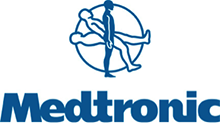Lisa Bobich, PhD

"Search for medical device companies and apply to any position that looks interesting; apply to all positions even if you don’t feel fully qualified – the company can decide whether to consider you or not (i.e., don’t filter yourself out by not applying); at my company, a lot of biomedical engineers work in the quality role. the best way to land a role is to network – I did this by finding an internship when I could not find a full-time position and then used the internship to network and find a full-time position."







